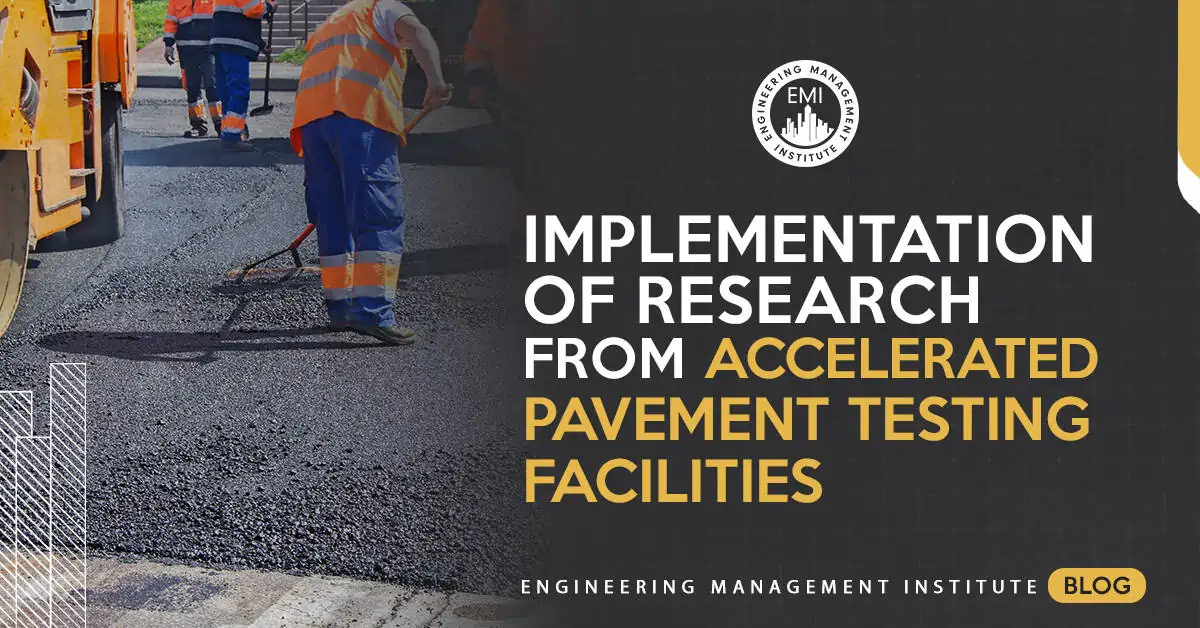This is a guest blog by Emil G. Bautista
In my last blog, I emphasized the importance of our highway system to our society in supporting the economy of countries around the world by continuously moving people and goods from one point to another, and the role that accelerated pavement testing (APT) facilities plays in providing DOT and industry engineers, through research and the collection of quality data, with the tools to achieve the common goal of ensuring lasting effects on tomorrow’s infrastructure with the decisions we make today.
Since the construction of MnROAD on Interstate-94 by the Minnesota Department of Transportation (MnDOT) in 1993, other APTs have been constructed. I previously mentioned the National Center for Asphalt Technology (NCAT) test track in Alabama originally constructed in 2000. More recently, we can see how the example set by these two APTs is influencing the construction of others; the Florida Department of Transportation (FDOT) has initiated the construction of a 2.5-mile concrete test road, long a northbound segment of US-301, which is expected to open to traffic by the end of 2021.
These test road facilities provide the ground for a comprehensive in-service performance assessment of different pavement technologies and innovative concepts while considering the interaction between factors such as traffic loading, materials properties, environmental conditions, design features, and construction practices. APTs serve as the foundation for engineers to work toward implementing new and emerging technologies, and it is of great importance to be able to have not one, but multiple APTs throughout the country that can work together in providing quality data on materials, weather, and traffic from different regions.
Working together is a key factor on the road toward implementation of the research conducted on these facilities. An African proverb says: “If you want to go quickly, go alone. If you want to go far, go together.” This a great way to see implementation by working together as a major factor to accomplish it, but it is also important to understand that it takes time and, therefore, things do not necessarily happen quickly. Implementing research findings from advanced pavement testing facilities requires the creation of alliances and associations that can group state agencies, industry, academia, and consultants.
Click Here to Read a Spanish Version of this Article
Examples of national pooled fund associations include the Consortium for Asphalt Pavement Research and Implementation (CAPRI, managed by NCAT/Alabama DOT) and the National Concrete Consortium (NC2, managed by Iowa DOT) along with the National Road Research Alliance (NRRA, managed by Minnesota DOT). Each group utilizes test tracks to engage stakeholders to discuss and develop priorities for research and implementation activities that advance pavement technologies and sponsor research through a Federal Highway Administration (FHWA) pooled fund process. Test tracks then can be utilized to strategically help implement cooperative pavement research.
Another key factor is to group people who can work together by using problem-solving skills that apply thinking outside-the-box mentality and creativity. In the case of creativity, I feel it is important to note the words of Susumu Tonegama, the recipient of the 1987 Nobel Prize in Medicine for his discovery of the genetic principle for generation of antibody diversity. In a question at the Nobel Prize Dialogue in Tokyo in 2017 about how he felt someone can be more creative, he replied that people should first be more curious, second possess an unfailing urge to address the question at hand, and third combine knowledge in at least two different fields.
In my opinion, these three things play an important role when it comes to implementation. In particular, the third one is very important to create a unique working group of people who are versatile, from a diverse background, and have unique perspectives. This is something I have experienced in my involvement with the National Road Research Alliance (NRRA), whose goal is to help agencies nationwide achieve consistent benefits from real-world road research with the help of very talented people who work as a team to identify problems, complete research projects, and implement results. In the words of Glenn Engstrom, the Executive Director of the NRRA, “The NRRA is at its best when we bring together a variety of passionate, dedicated people to solve common problems.” I personally believe this is essential when it comes to implementing research findings.
About the Author:

I hope you enjoyed this week’s post by guest author Dr. Emil G. Bautista, PE. If you’re interested in your firm possibly joining the Civil Engineering Collective, please contact us here or call us at 800-920-4007.
I hope you’ll join us.
Anthony Fasano, P.E.
Engineering Management Institute
Author of Engineer Your Own Success


